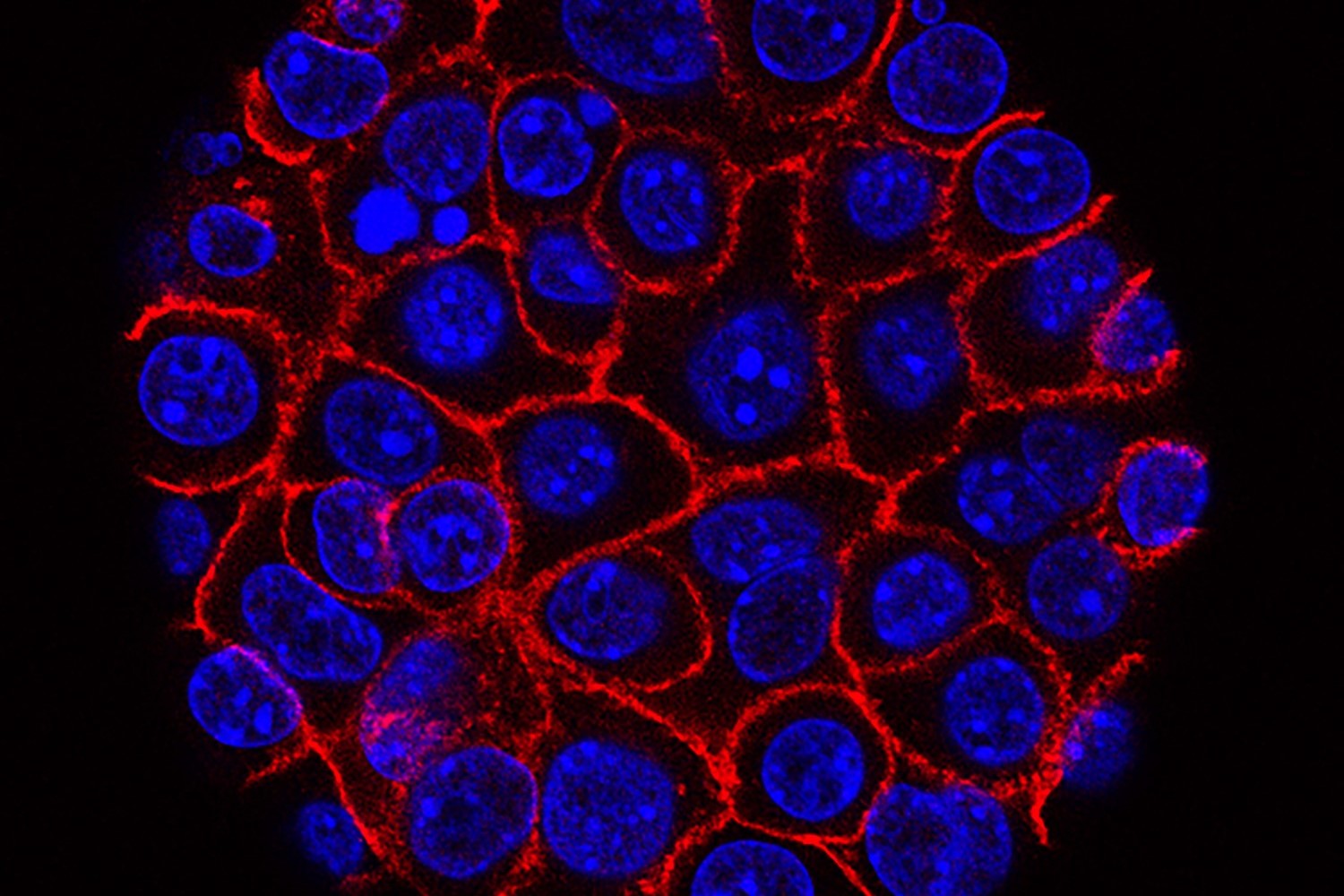
Researchers from the University of Texas MD Anderson Cancer Center have published new findings about how pancreatic cancer cells grow and protect themselves. The research, published Thursday in Cancer Cell, reveals that cancer cells make their own unique form of collagen.
The collagen that cancer cells produce is fundamentally different from normal collagen made in the human body. This means drug developers may have a new, highly specific target for therapeutics, according to a Dr. Raghu Kalluri, one of the study’s authors.
Dr. Kalluri and his team of researchers set out to better understand the changes that pancreatic cancer cells undergo to help them grow and proliferate. They found that a key reason these cancer cells grow so rapidly is because they produce an abnormal form of collagen that is not found elsewhere in the body.
Normal collagen is a heterotrimeric protein. This means that two α1 (alpha 1) chains and one α2 (alpha 2) chain assemble to form a triple-helix structure as part of the extracellular matrix. The collagen that cancer cells produce differs because it expresses only the α1 gene. Therefore, its extracellular matrix is a homotrimer consisting of three α1 chains. This unique extracellular matrix protects cancer cells by repelling T cells, aiding cancer’s ability to survive and multiply.
“It’s a unique collagen that seems to form a shield or protective cloak around cancer cells,” Kalluri explained. “It does not allow the immune system to see the cancer cells, nor kill them.”
To learn more about their discovery, Kalluri and his team created knockout mouse models of pancreatic cancer, meaning they genetically modified cancer cells and implanted them into mice. They removed the homotrimer from the cancer-specific collagen and found that this reduced cancer cell proliferation and immunosuppression in the mice.

A Deep-dive Into Specialty Pharma
A specialty drug is a class of prescription medications used to treat complex, chronic or rare medical conditions. Although this classification was originally intended to define the treatment of rare, also termed “orphan” diseases, affecting fewer than 200,000 people in the US, more recently, specialty drugs have emerged as the cornerstone of treatment for chronic and complex diseases such as cancer, autoimmune conditions, diabetes, hepatitis C, and HIV/AIDS.
Additionally, the researchers also found that deleting the homotrimer reprogrammed the tumor microbiome in mice. The loss of the cancer-specific collagen led to changes in the tumor’s bacterial composition, as well as a decrease in myeloid-derived suppressor cells and an increase in T cells. This was reversed when antibiotics were introduced, which means cancer-specific collagen could support cancer growth by strengthening a tumor-friendly microbiome.
Though the study examined only pancreatic cancer, collagen homotrimers also exist in other types of cancer, including lung and colon, according to Kalluri. He said this could mean there are broad opportunities to innovate cancer treatment.
“This is a brand new target,” he said. “This new target cancer cells have on their surface lets them live longer and happier. By targeting and blocking that through a drug, we have a brand new treatment modality we can test.”
The discovery of cancer-specific collagen opens the door for researchers to create drugs that can target and attack the homotrimer to kill cancer cells. Kalluri said his team will continue their research to understand more about cancer-specific collagen so that drug developers can be more informed in their eventual efforts to develop novel oncology therapeutics.
“This opens up a huge opportunity for biopharma companies,” he said. “This work would be of great interest to the pharmaceutical industry and people who invest in it.”
Photo source: The National Cancer Institute












